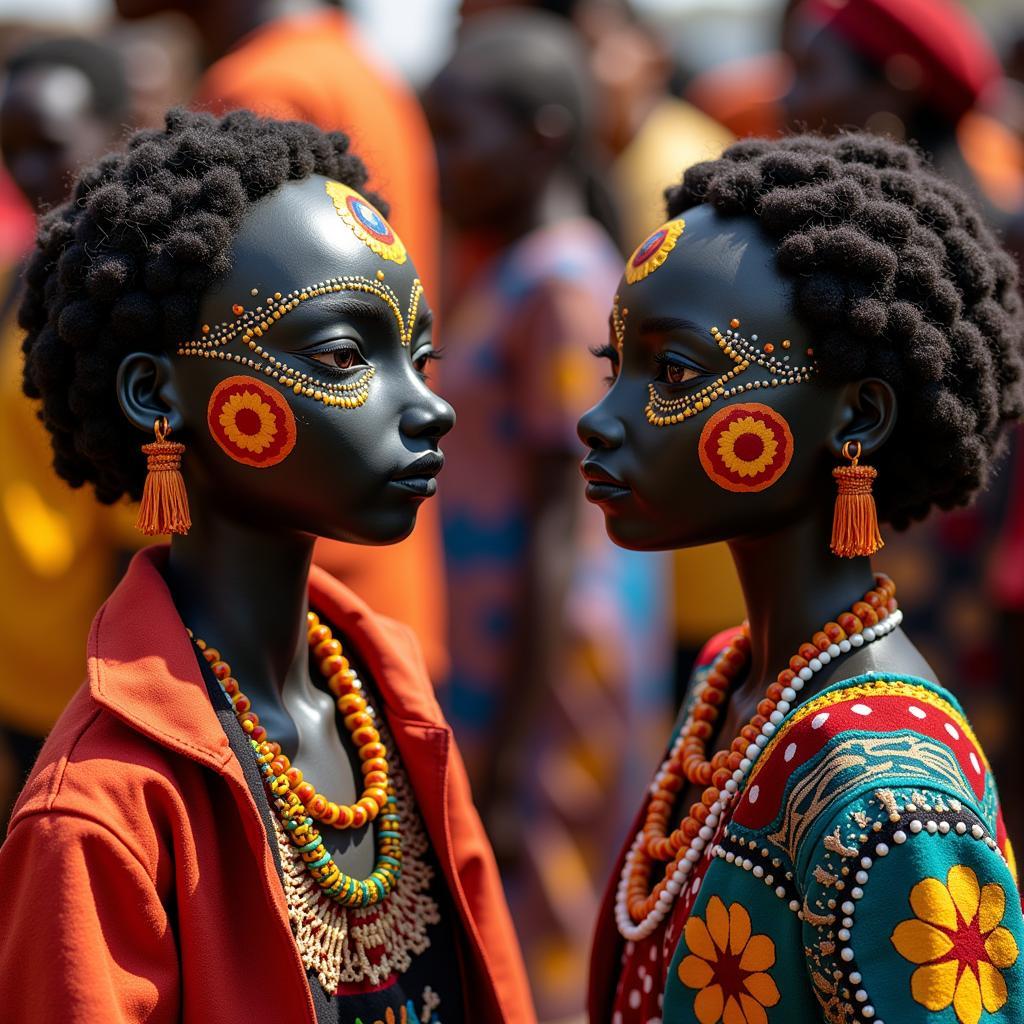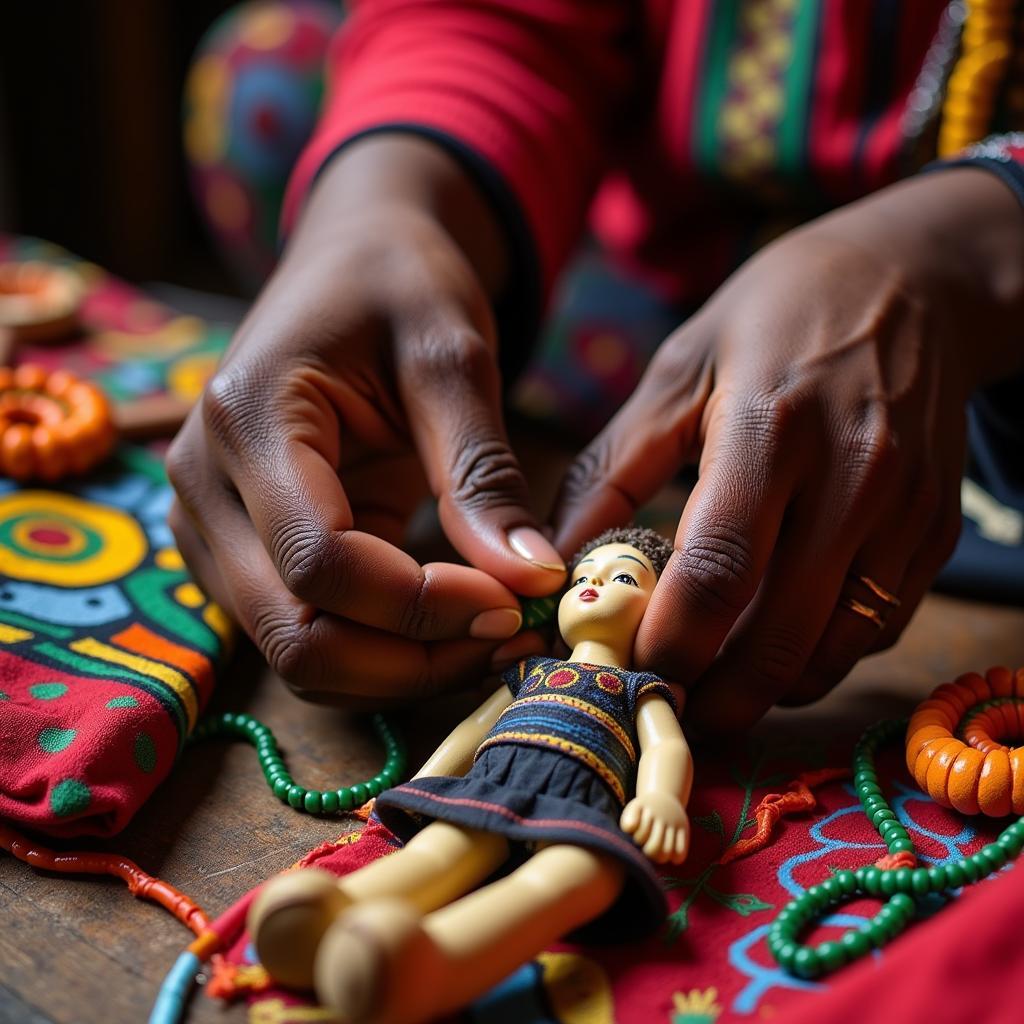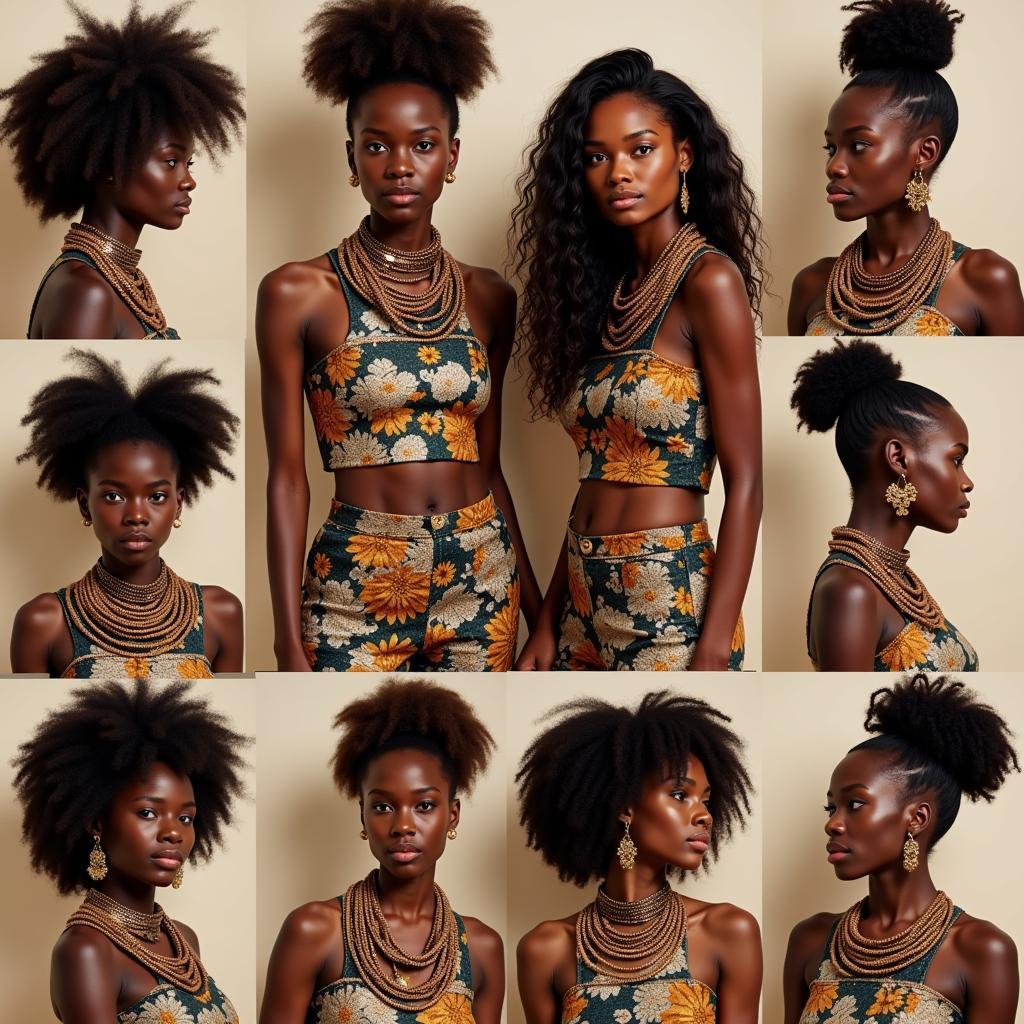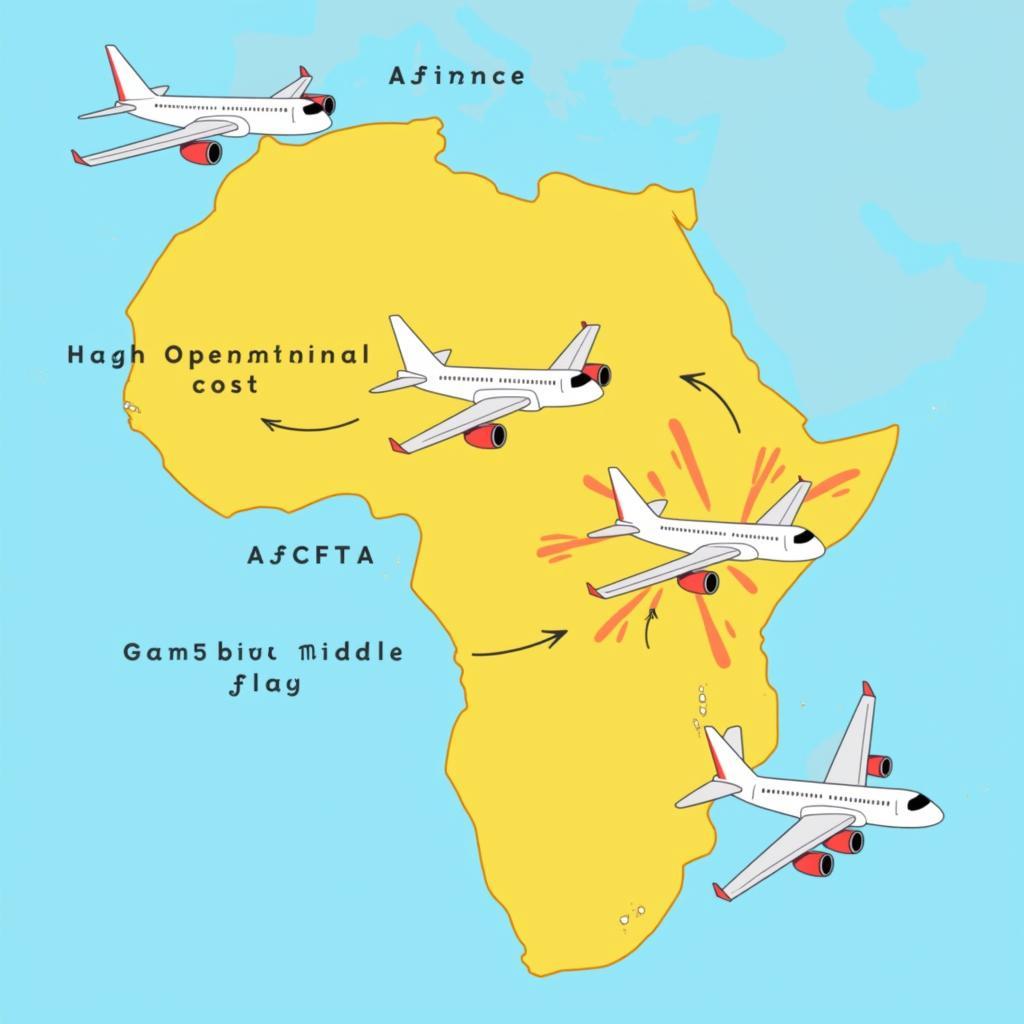Unveiling the Stories: African Doll Pair
African Doll Pairs are more than just playthings; they’re intricately woven into the cultural tapestry of the continent. Representing heritage, family, and tradition, these dolls offer a glimpse into the diverse and rich lives of African people. From intricate beadwork to vibrant textiles, every detail tells a story, whispering tales passed down through generations.
More Than Meets the Eye: The Significance of African Doll Pairs
 African Doll Pair in Traditional Ceremony
African Doll Pair in Traditional Ceremony
In many African cultures, dolls are not simply toys but powerful symbols embedded with deep meaning. They are used in rituals, ceremonies, and everyday life to teach, heal, and connect with the spiritual world. African doll pairs, often depicting a male and female, represent the fundamental values of family, fertility, and community. They serve as a visual reminder of the interconnectedness of life and the importance of balance.
Craftsmanship and Cultural Identity: Exploring Diverse Styles
Across the vast African continent, the styles of doll pairs vary greatly, reflecting the unique artistic traditions of each region.
- West Africa: Known for their bold colors and patterns, West African doll pairs often feature elaborate hairstyles and jewelry. Materials like wood, clay, and fabric are used to create these expressive figures.
- East Africa: Beaded dolls are popular in East Africa, with intricate designs often symbolizing social status or clan affiliations. The Maasai people, for example, are renowned for their beaded dolls, which play a role in young girls’ rites of passage.
- Southern Africa: In Southern Africa, you’ll find doll pairs made from materials like corn husks, grass, and fabric scraps. These dolls often reflect the daily lives and activities of the people, with some even depicting traditional healers or storytellers.
 Preserving Heritage Through African Doll Making
Preserving Heritage Through African Doll Making
A Legacy Passed Down: African Dolls and Intergenerational Storytelling
One of the most captivating aspects of African doll pairs is their role in storytelling. As children play with these dolls, they’re not just engaging in imaginative play; they’re absorbing cultural narratives, values, and traditions. Grandmothers and mothers use the dolls to share stories about their ancestors, teach life lessons, and impart wisdom that has been passed down for generations. This intergenerational exchange ensures the continuation of cultural heritage and strengthens family bonds.
Dolls, like the beautiful African bridal gowns often worn by these figures, hold a special place in cultural celebrations and milestones.
African Doll Pairs in the Modern World
Today, African doll pairs continue to hold cultural significance while also gaining recognition as unique works of art. They are sought after by collectors and art enthusiasts worldwide, appreciating their craftsmanship and the stories they embody.
Are African doll pairs only found in Africa?
While originating in Africa, these dolls have transcended geographical boundaries. You can find them in museums, art galleries, and homes across the globe, serving as a testament to the enduring power of African art and culture.
What is the best way to learn more about the specific meaning of an African doll pair?
Researching the cultural background of the dolls is key. Look for information about the ethnic group or region they originate from. Museums and online resources can provide valuable insights.
Celebrating Heritage, Embracing Diversity
African doll pairs provide a fascinating window into the soul of a continent. They are tangible expressions of creativity, resilience, and the deep-rooted belief in the power of storytelling. By appreciating these dolls, we celebrate the richness and diversity of African culture and honor the traditions that continue to inspire and connect people across generations.
Searching for other expressions of African culture? Explore the vibrant world of African coffee cream and its unique flavors.
Remember, these handcrafted treasures are more than just objects; they are vessels of history, culture, and the enduring human spirit.
Need help planning your next adventure? Contact African Bush & Beach Adventures Ltd.
Looking for a taste of Africa? Try this delicious recipe for African avocado soup.
Let’s work together to support African kids without food.
For any assistance, please contact us at:
Phone Number: +255768904061
Email: [email protected]
Address: Mbarali DC Mawindi, Kangaga, Tanzania.
We have a 24/7 customer support team ready to assist you.


